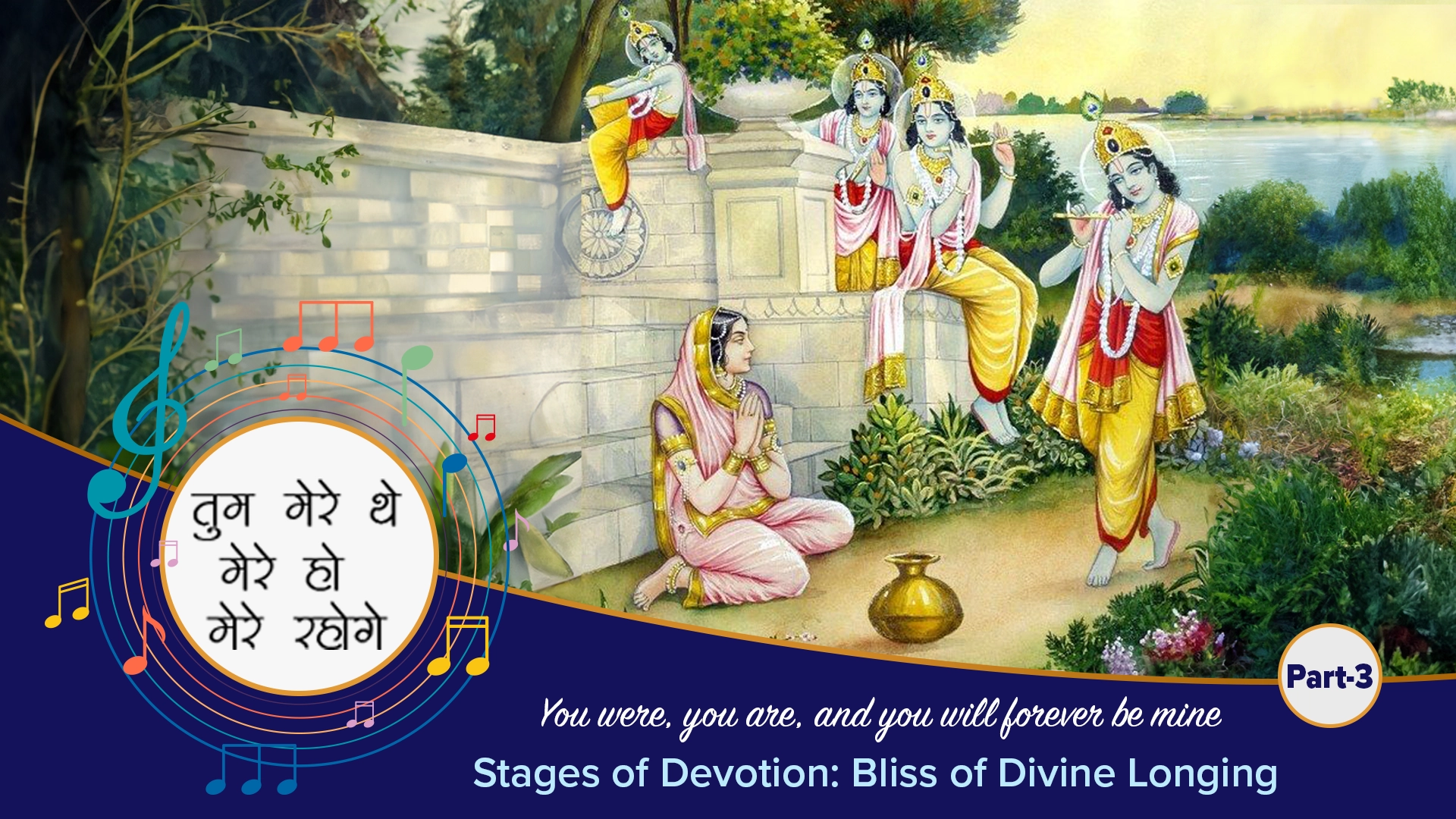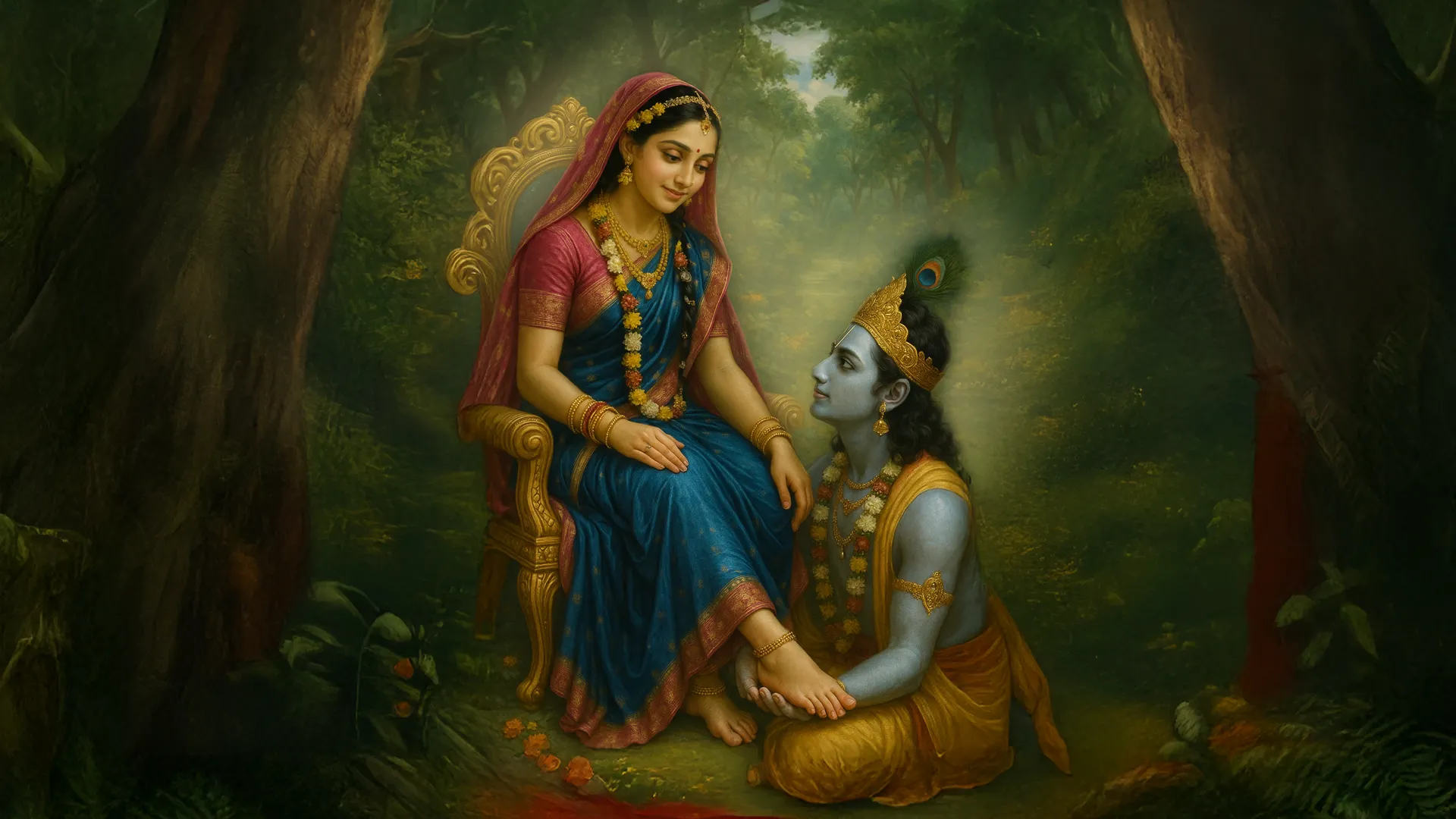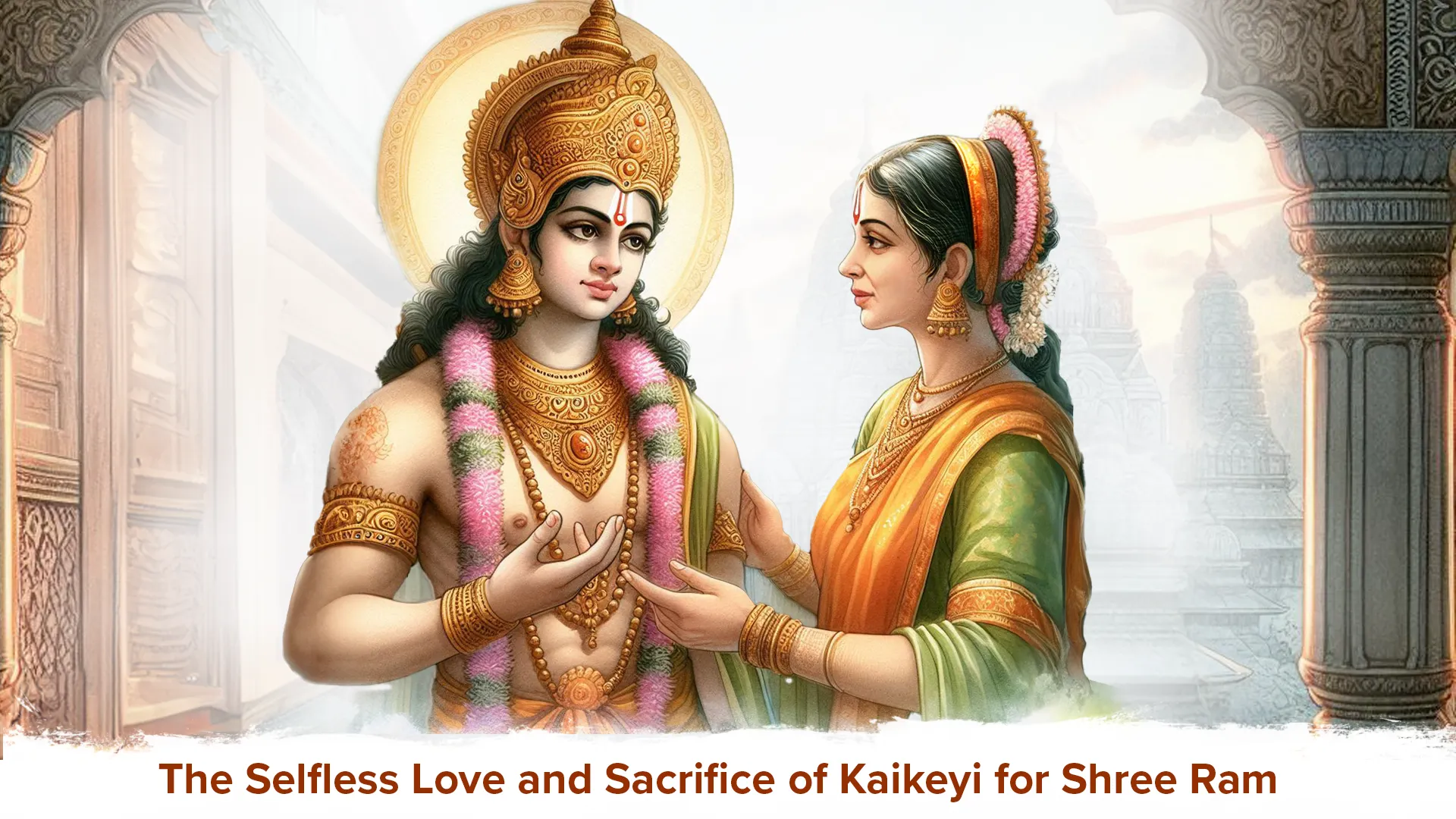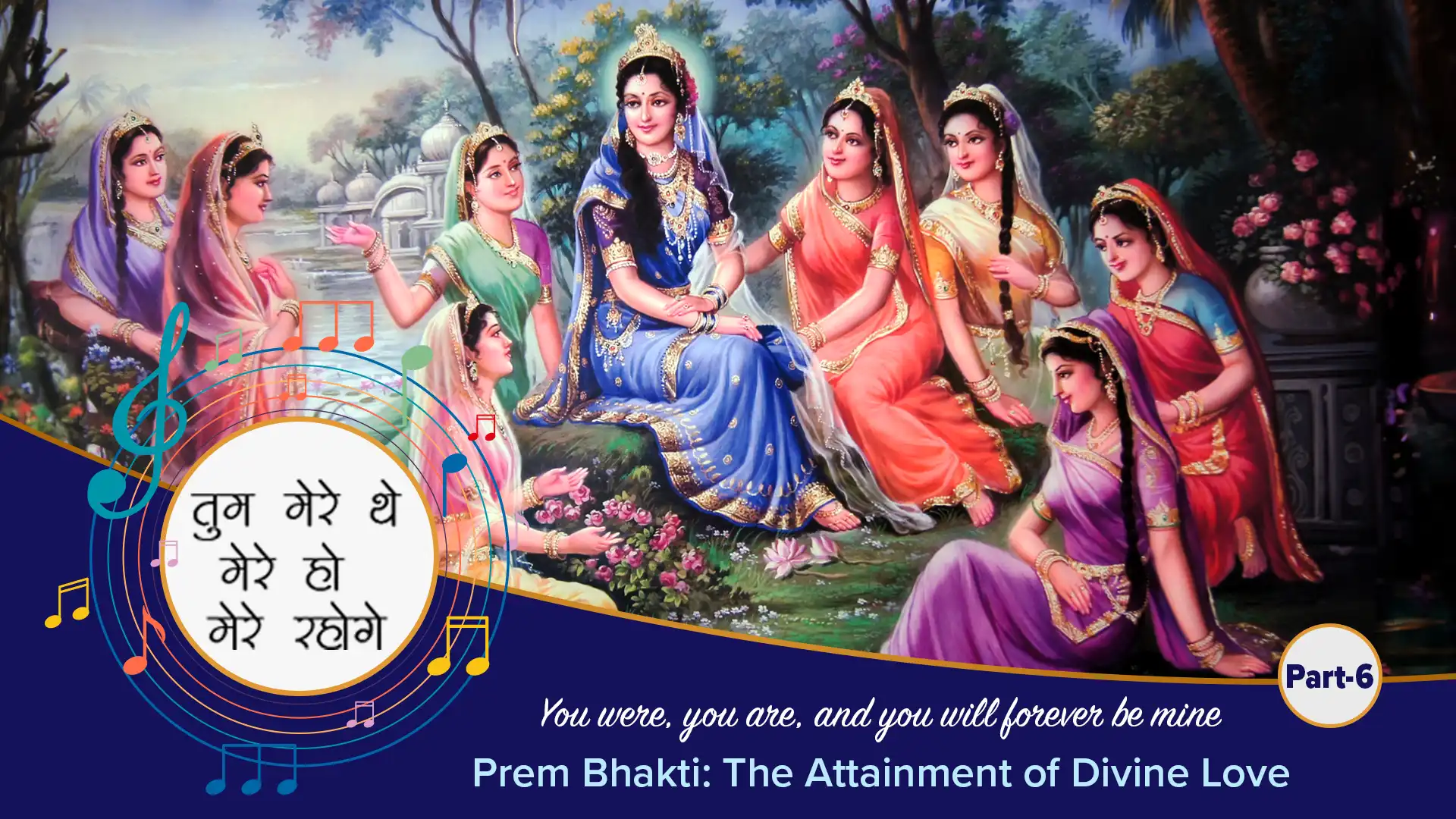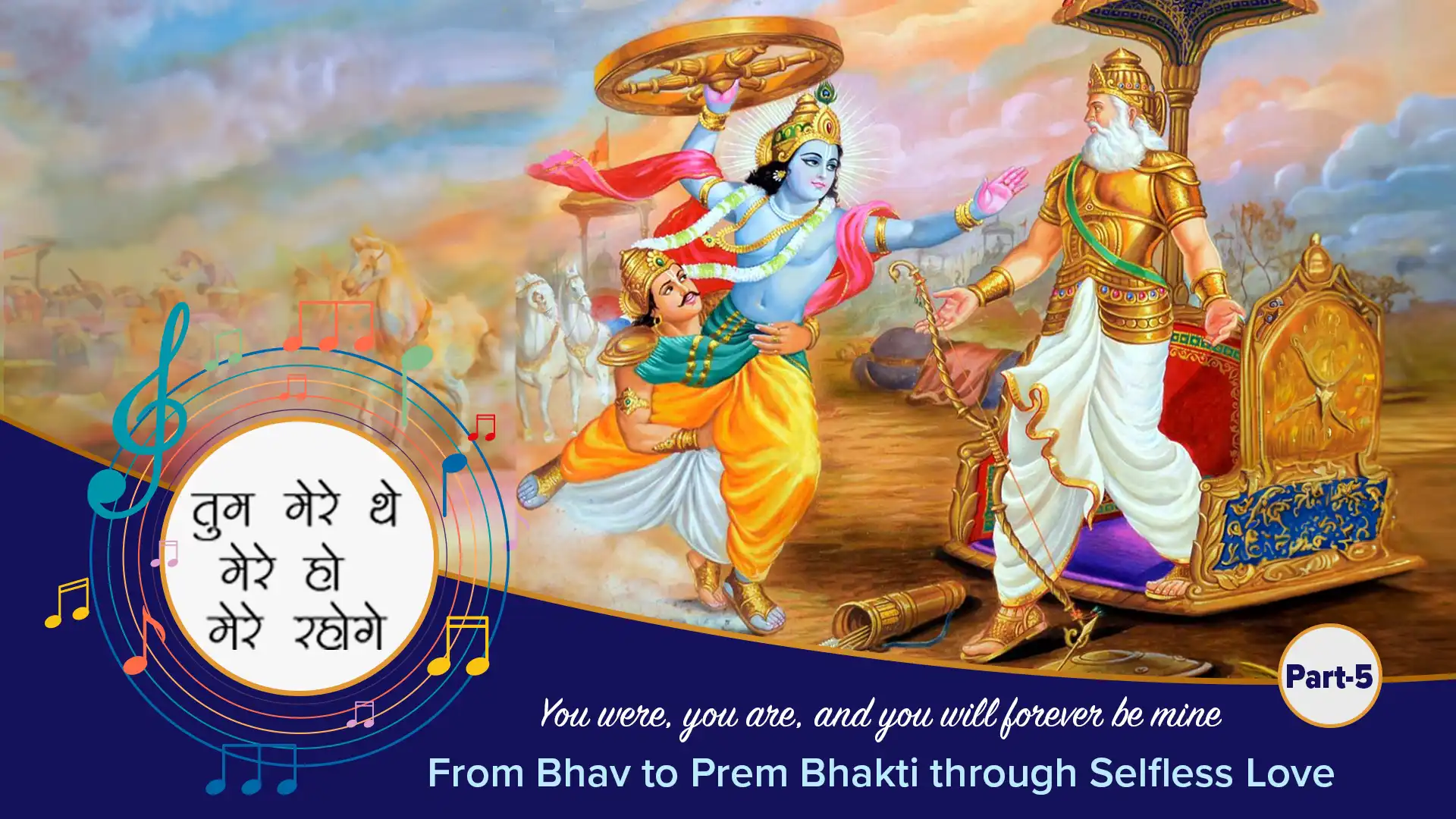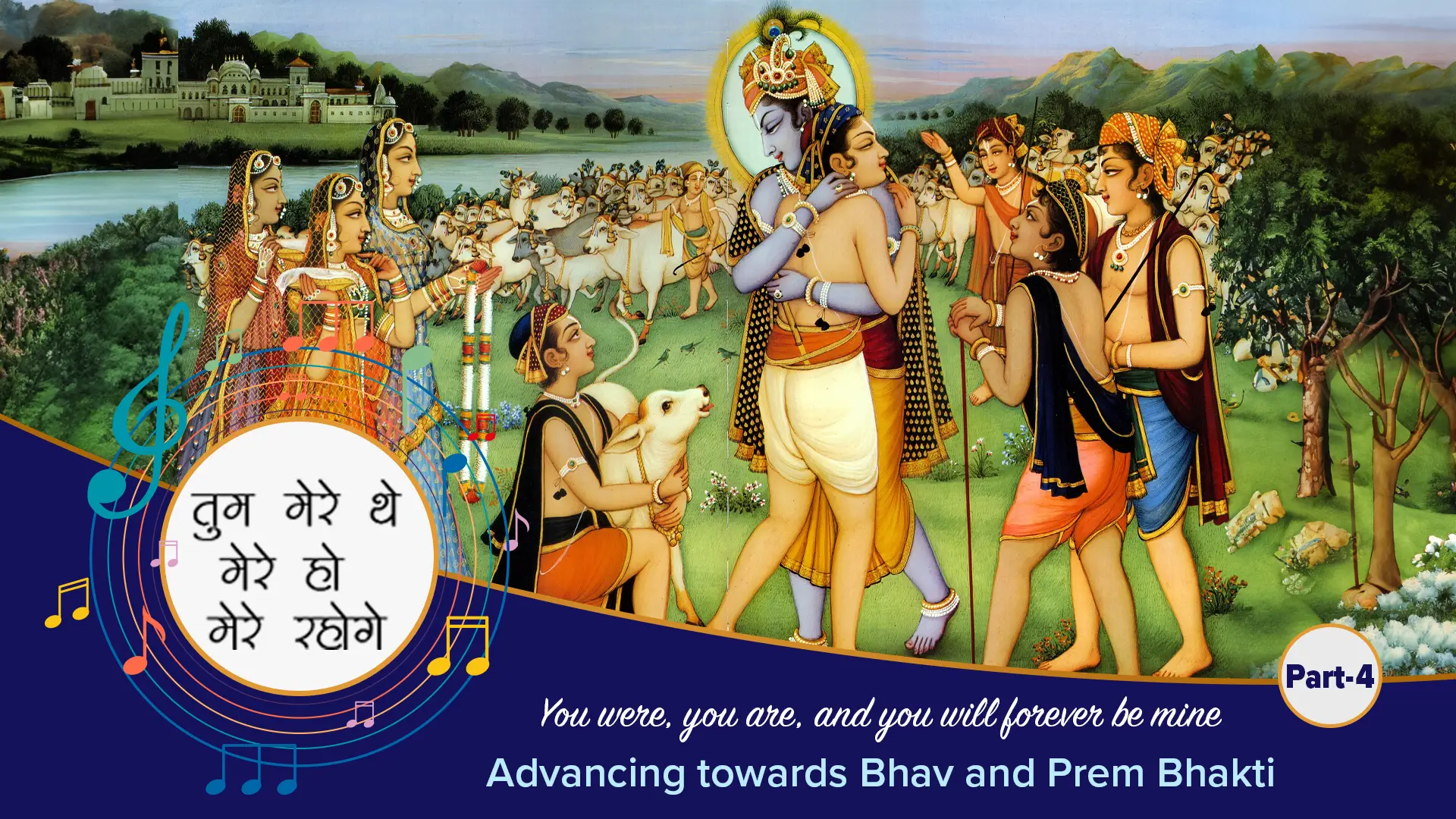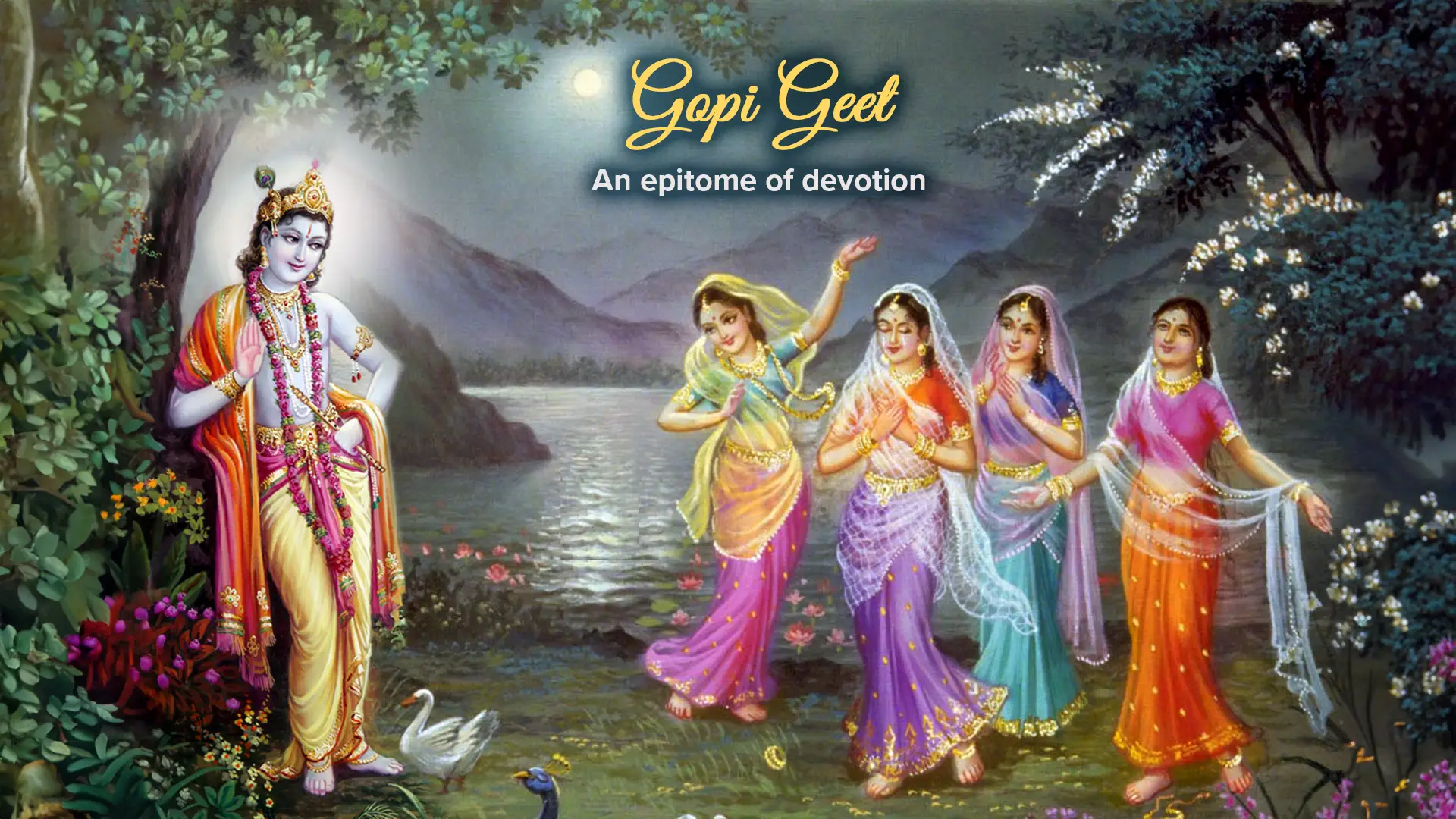In this divine kirtan, Shree Maharajji declares to Shree Krishna: “Tum mere the mere ho mere rahoge” (You were mine, You are mine and will always be mine). He states with conviction that nothing will change this state—not even an unfavourable behaviour from his beloved Lord. Even if God gives him viraha, (separation), he shall not be dissuaded by it. In the previous month, we learnt in the second stanza that when the soul longs for God and when the crucible of love is placed on the fire of separation, his heart is cleansed of all impurities, and his love becomes resplendent and effulgent. Separation washes away pride and all negative tendencies of the soul.
The following stanza continues with the rubric of longing for God and the benefits of separation for a soul in the quest for God.
आ या ना आ मुरली वारे,
रो रो कर हम तुम्हें पुकारें।
प्रेम बढ़ेगा छिन छिन मेरा, यूँ तेरे तड़पाने से।।
Aa yā nā ā muṟlī vāre,
Ro ro kar ham tumhe pukāre.
Prem baṛhegā chiṇ chiṇ merā, yūn tere taṛpāne se
These lines may be translated as: “O Shree Krishna, the One with the flute, whether you come or not, I will continue to cry in longing for you. The more you torment me, the more shall my love for you increase.” These lines take us deeper into the nature of selfless love. Here, the devotee says that it does not matter to him whether his beloved Lord gives him darshan or not. He has no demands and respects the will of his worshipped God. He will continue to do bhakti without being affected by success or failure. True Bhakti, thus, is an end in itself. And a true devotee wishes to see and meet God so that he can serve Him.
Nine Stages of Bhakti or Devotion
Yet, a devotee may think, why is God delaying in giving him darshan despite the austerity he is practising? The answer to this question is God does not delay without purpose. He waits for the perfect moment when the devotee is ready to receive His grace. Once the devotee embarks upon the spiritual path, he must go through the following stages of Bhakti as mentioned by Shree Ropa Goswami in Bhakti Rasāmrita Sindhu:
1. Sraddha (श्रद्धा/śraddhā): Faith
2. Sadhu-sanga (साधु संग/sādhu saṅg): Association with Saints
3. Bhajana-Kriya (भजन-क्रिया/bhajana-kr̥yā): Performance of devotional practices
4. Anartha Nivritti (अनर्थ निवृत्ति/anartha nivṛtti): Decreasing unwanted attachments
5. Nistha (निष्ठा/niṣṭhā): Steadiness
6. Ruchi (रुचि/ruchi): Taste
7. Asakti (आसक्ति/āsakti): Attachment
8. Bhava (भाव/ bhāv): Love
9. Prema (प्रेम/ prema): Pure love for God.
In the first stage, one develops Sraddha or faith in the existence of God and the desire to meet Him. Then, he comes in contact with a realised Saint who becomes his Guru. And thus, he attains Sadhu-sang. Under the guidance of the Guru, he engages in the process of Bhajan-Kriya— singing, dancing and chanting the names of God. By executing such devotional practices, he becomes free from material attachments and the vices of anger, lust, greed and anxiety are cleansed. This is the stage of Anartha Nivritti. Moving forward from here, the devotee’s Nishtha, or faith in God, becomes stronger, and he begins to crave the rich nectar of God. This propensity to everything divine leads to Asakti, or attachment to God, which further leads him to the stage of Bhav, the preliminary stage of transcendental love of God, where one develops an intense longing for his Beloved Lord. At this stage, the devotee feels the presence of Krishna near him and is drowned in the stream of ecstasy. The disciple’s journey culminates in complete surrender in the manner stated by God Himself in the Bhagavad Gita :
सर्वधर्मान्परित्यज्य मामेकं शरणं व्रज |
अहं त्वां सर्वपापेभ्यो मोक्षयिष्यामि मा शुच: || 66||
(Bhagavad Gita:18:66)sarva-dharmān parityajya mām ekaṁ śharaṇaṁ vraja
ahaṁ tvāṁ sarva-pāpebhyo mokṣhayiṣhyāmi mā śhuchaḥ
Translation: Abandon all varieties of dharmas and simply surrender unto Me alone. I shall liberate you from all sinful reactions; do not fear.
At this stage of perfection, the Guru bestows divine love or Prem upon him. This is the highest state of divine bliss. On attaining it, a devotee ultimately reaches the divine abode of God and is One with Him.

